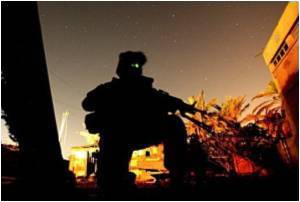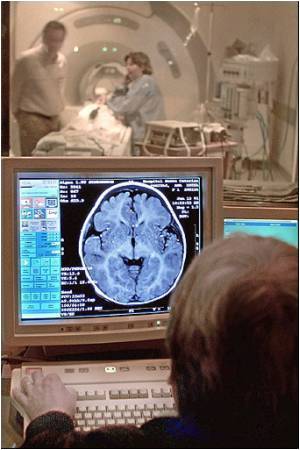After tracking how an explosive blast impacts the skull and brain, researchers said Monday that adding a face shield to the US military helmet could help prevent traumatic brain injury in soldiers.

The current helmet, which leaves a soldier's face exposed, could be improved by adding a transparent shield made of polycarbonate, which is used in the making of bullet-resistant glass, said the study by researchers at Massachusetts Institute of Technology.
"The face is the main pathway through which pressure waves from an explosion are transmitted to the brain," said the study in the Proceedings of the National Academy of Sciences.
MIT researchers used computer modeling and data derived from previous studies on pig brains to show the impacts of a blast on a human skull in three instances: one without a helmet, one with the standard issue combat helmet and one with the helmet and proposed face shield.
The current US military helmet "slightly delayed the arrival of the blast wave, (but) it didn't significantly mitigate the wave's effects on brain tissue," the study said.
Using a face shield, "the models showed a significant reduction in the magnitude of stresses on the brain because the shield impeded direct transmission of blast waves to the face."
Source-AFP
 MEDINDIA
MEDINDIA




 Email
Email










